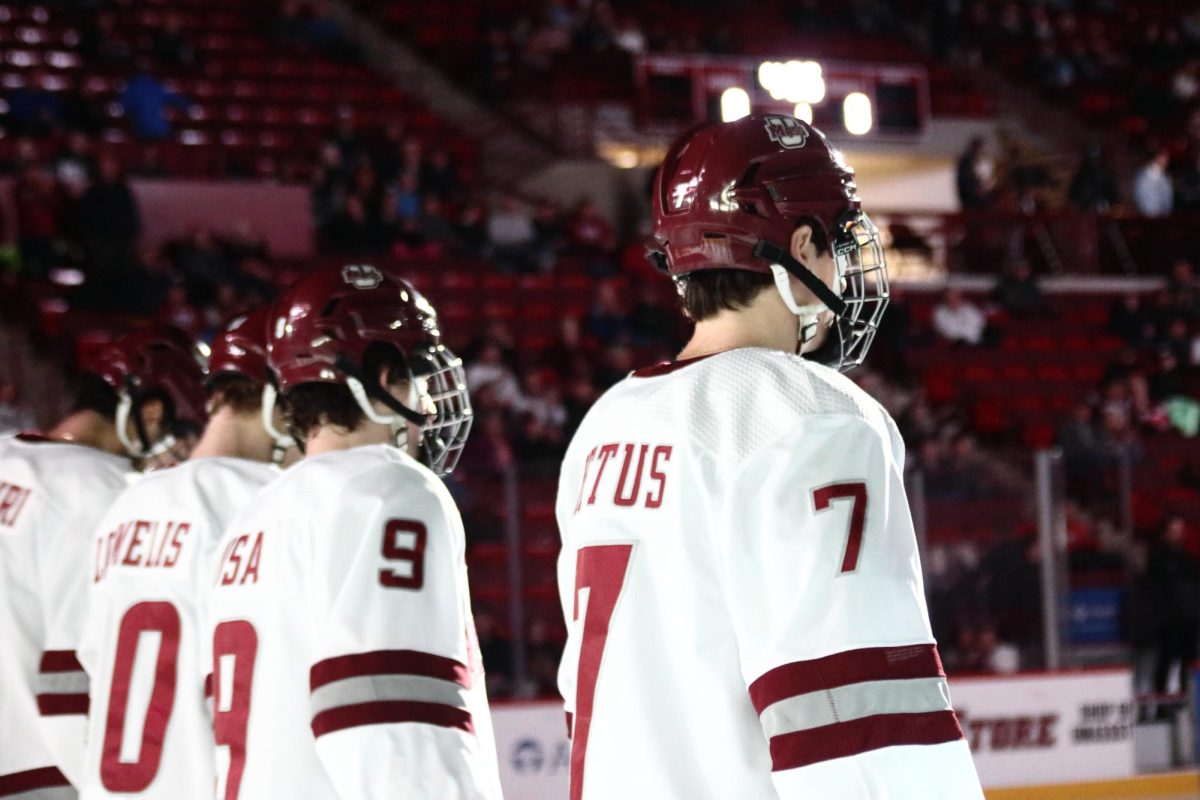The Stonewall Center Lecture Series continued yesterday with a brief talk and discussion about the gay Bear community, led by author, historian and activist Les Wright.
A self-identifying gay Bear, Wright is also the author of two books, The Bear Book: Readings in the History of Evolution of a Gay Male Subculture and The Bear Book II: Further Readings in the History of Evolution of a Gay Male Subculture. Wright said that the books constitute the first academic analysis of the culture, which he referred to as a “culture of outsiders.”
Bears are often identifiable by their appearance, according to Wright. They are most often heavyset men with hairy bodies, with an especial focus on beards and other facial hair. Their rugged appearance, according to Wright, is how they earned the name “Bears.”
Wright, who was also a founding member of the Gay and Lesbian Historical Society in San Francisco, also focused on the impact of the AIDS epidemic on gay culture in the ’80s during his lecture. He said that early attempts at creating a gay historical archive were thwarted when families of AIDS victims would “come in and destroy all evidence of the gay life of their sons.”
The stigma on homosexuality was especially hard on the community during the advent of AIDS, he said. “People were literally hiding,” he explained. “Today AIDS is seen as an inconvenience. You take the drugs and go on. It’s not the trauma it was for my generation.”
He also said that there are generational differences in dealing with the social stigmatization of gay identity that go beyond the impact of AIDS. “I meet young people now who say, ‘I’ve been gay since I was five years old and it’s not a problem for me,'” he said. “I wish that I had been born during that time.”
Meanwhile, Wright said, Bears have also been stigmatized within their community. “Bears were everywhere [in the ’80s],” he said. “But no one was recognizing them. They were like the elephant in the middle of the living room floor that everyone else was trying to ignore.”
Since the ’80s, Wright said, awareness has been raised about Bear culture, but it has also since morphed into a more stratified, divided community. Originally, according to Wright, “anyone who called him or herself a Bear was accepted. It’s ironic, now, how gay Bears became exactly what they had started out in protest against,” he said. “Now there’s all kinds of racial, social, class and ethnic divisions.”
He distinguished, however, between Bear identities that focus on attitude and those who focus on body type. The groups that focus on attitude tend to be more open, he said. “One of the things that gets talked about is that Bears have a non-attitude,” he said. “They are gay men, naturally men, comfortable in their own skin. It’s amazing how much it has become the opposite.
“Bear identity [of this nature] addresses the issue of how people relate to their bodies,” Wright said. “Most of us in this society are raised to find our bodies unacceptable – it’s one of the ways capitalism works. Bears have a particular issue with that and react by setting their own standards of beauty.”
But, he says, Bear culture can be an example of “intra-community racism” among gays and lesbians. “People who are heavier seem healthier to us,” he said. “Rather than small people who look like concentration camp victims, or people bulked up on steroids who can be imperious or domineering.”
This becomes tricky, he said, when a supposedly egalitarian culture like the Bears comes to believe that “thinness is not acceptable.”
One audience member told of a friend being rejected socially by a Bear. “He said to my friend, who easily weighed 250 pounds already, ‘come back and talk to me when you’ve gained another hundred pounds’,” he said.
Wright explained that offshoots of the Bear group, such as Otters and Wolves, had come about because of the narrowing of acceptable Bear identities. “Now we have a whole Noah’s Ark of creatures,” he said.
“Bear culture is ultimately a microcosm of gay society as a whole, with all the richness and complexity as any social group,” he said. “But I think since [Bears] are a smaller group these things stand out more.
“I guess whenever you get any group of people together,” he said, “there will be politics.”






